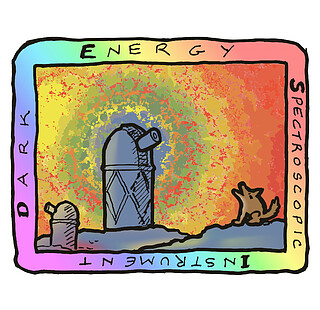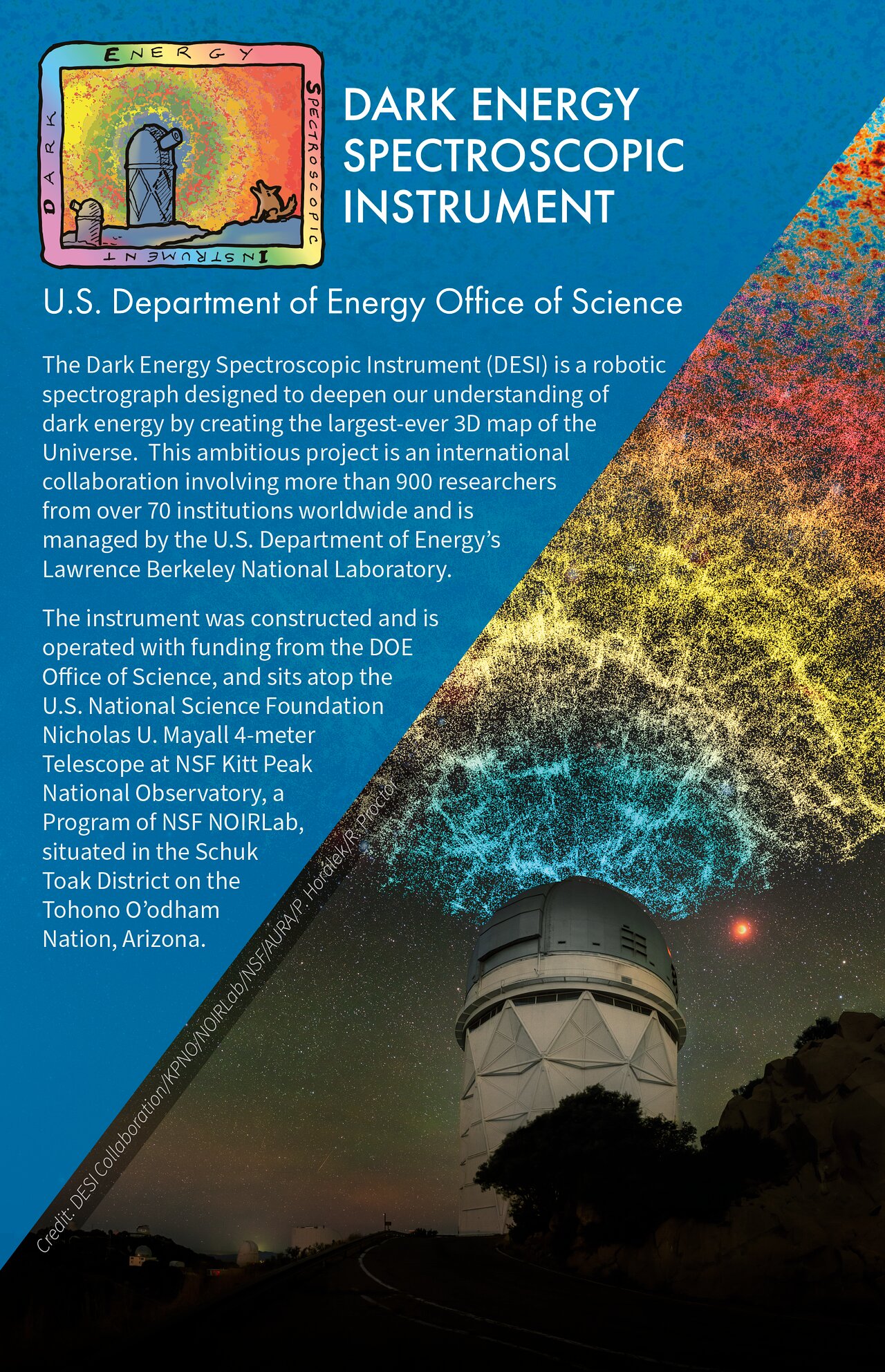The Dark Energy Spectroscopic Instrument (DESI)
The Department of Energy Dark Energy Spectroscopic Instrument (DESI) measures the effect of dark energy on the expansion of the Universe. It obtains optical spectra for tens of millions of galaxies and quasars, constructing a 3D map spanning the nearby Universe out to 11 billion light-years.
The DESI Survey is conducted on NOIRLab’s Nicholas U. Mayall 4-meter Telescope at Kitt Peak National Observatory (KPNO). DESI is supported by the Department of Energy Office of Science to perform this Stage IV dark energy measurement using baryon acoustic oscillations and other techniques that rely on spectroscopic measurements. The DESI project and the operations of the survey are led by the Lawrence Berkeley National Laboratory.
DESI is the most powerful multi-object survey spectrograph in the world. The DESI project and collaboration conducts a spectroscopic survey to build the largest three-dimensional map of the Universe. By analyzing the gravitational clustering of galaxies, quasars, and intergalactic gas clouds within this map, DESI will derive the most precise constraints on the nature of dark energy.
DESI repeatedly maps the distance to 35 million galaxies and 2.4 million quasars across one third of the area of the sky over its five-year run. In ideal conditions, DESI cycles through a new set of 5000 galaxies every 20 minutes, or more than 100,000 galaxies a night. 5000 robotic positioners automatically point DESI’s fiber-optic eyes at preselected sets of galaxies to measure their spectra, from which one can gauge how much the Universe expanded as the light from them traveled to Earth.
Data management and processing for the DESI Project is based at Lawrence Berkeley National Laboratory’s NERSC. DESI creates periodic data releases of spectra and catalogs throughout the survey that are the basis for the collaboration’s key scientific analyses. In collaboration with NERSC, NOIRLab’s Astro Data Archive and Astro Data Lab developed by CSDC serve these data once publicly released to enable astronomers worldwide to use archival DESI data in their research.
DESI is supported by the US Department of Energy’s Office of High Energy Physics; the US National Science Foundation Division of Astronomical Sciences under contract to NSF’s NOIRLab; the Science and Technologies Facilities Council of the United Kingdom; the Gordon and Betty Moore Foundation; the Heising-Simons Foundation; the French Alternative Energies and Atomic Energy Commission (CEA); the National Council of Science and Technology of Mexico; the Ministry of Economy of Spain; and DESI member institutions. The DESI scientists are honored to be permitted to conduct astronomical research on Iolkam Du’ag (Kitt Peak), a mountain with particular significance to the Tohono O'odham Nation.

